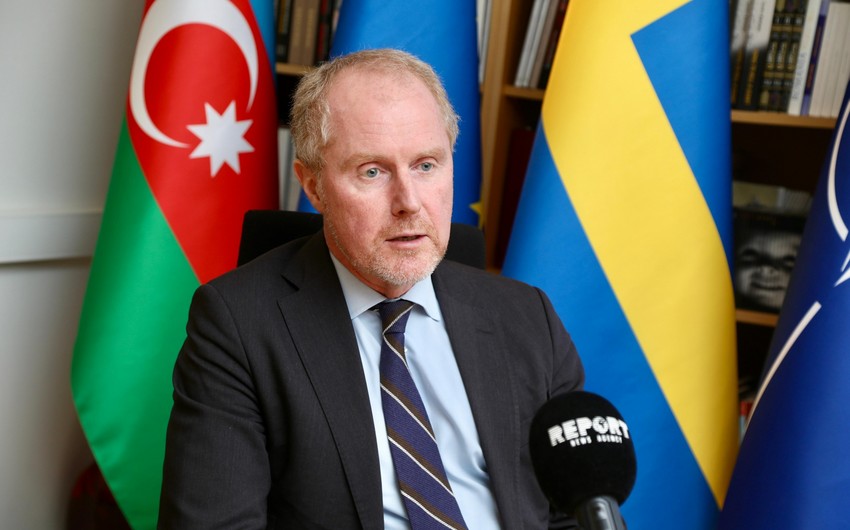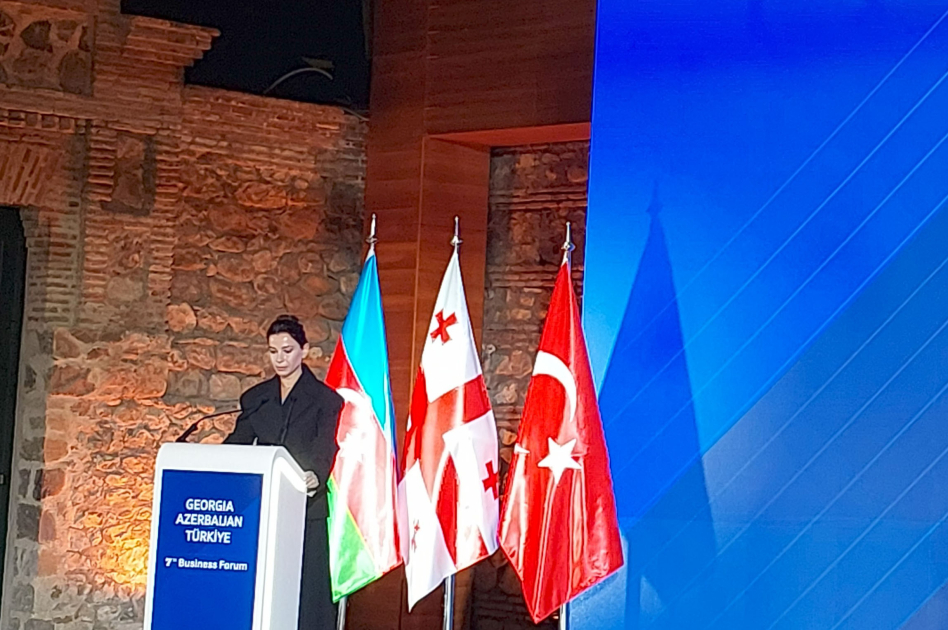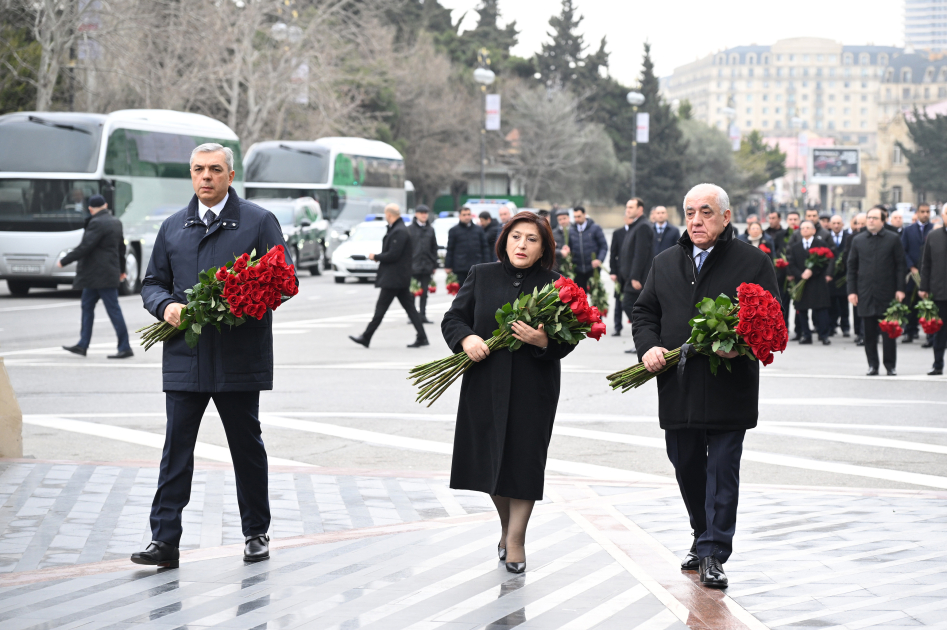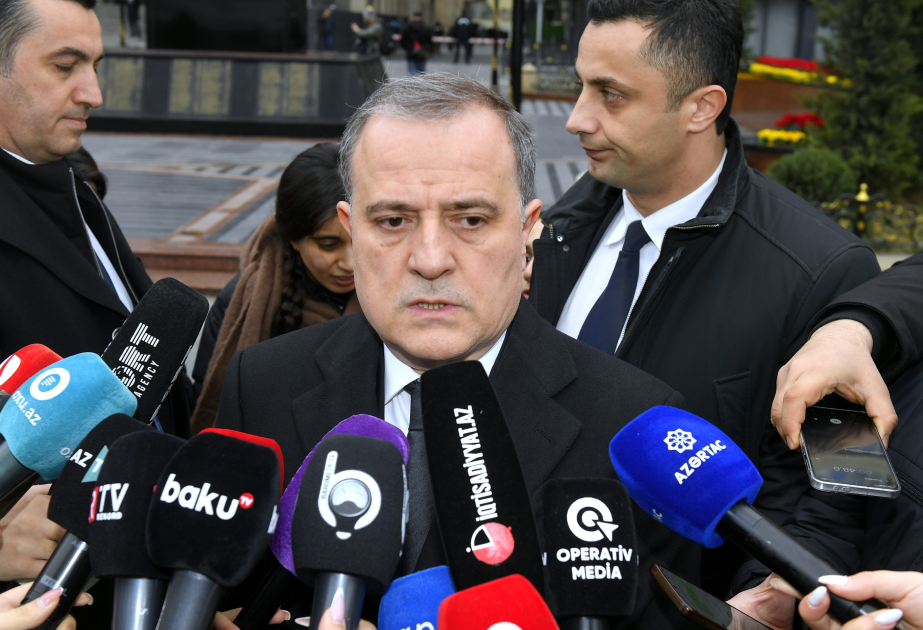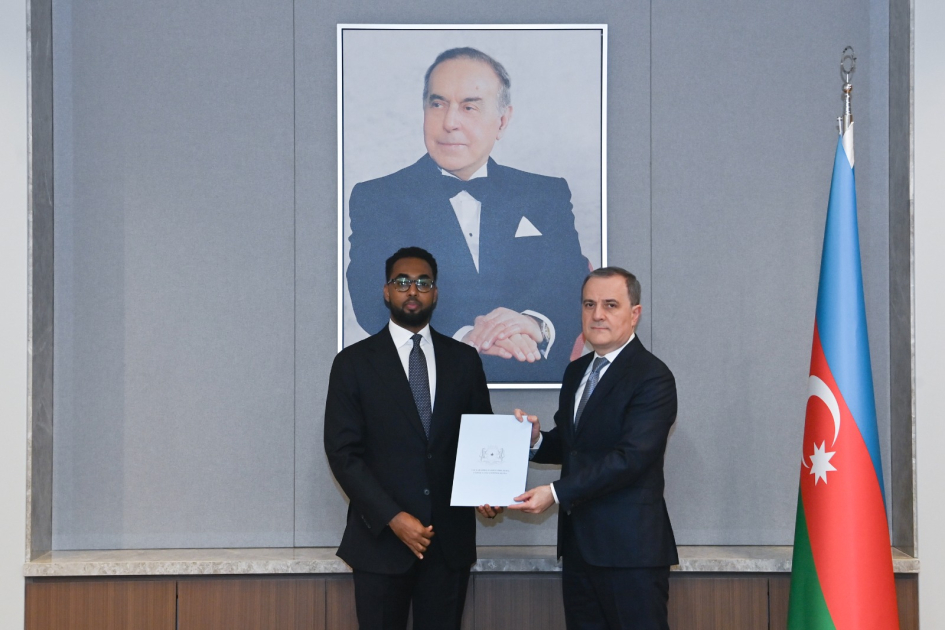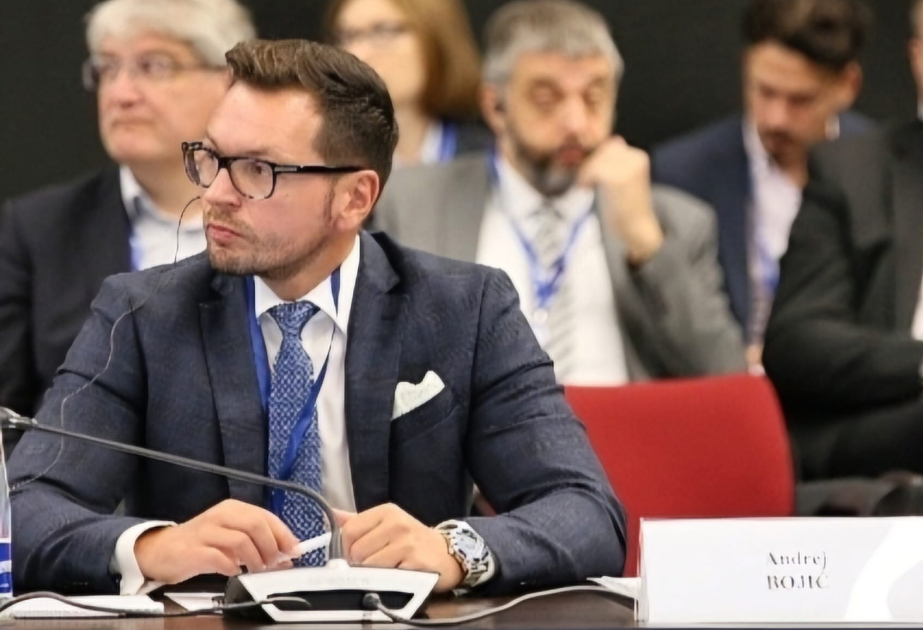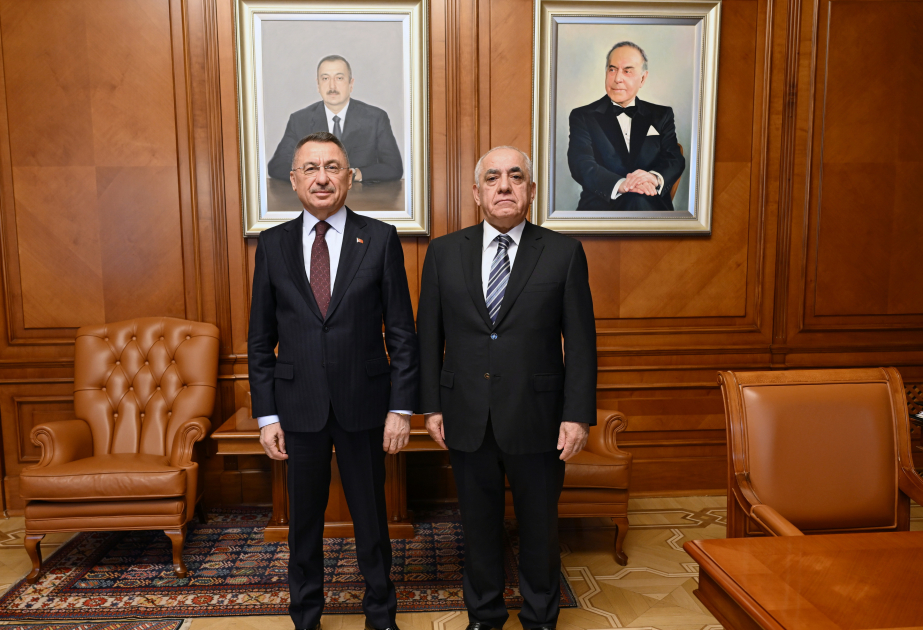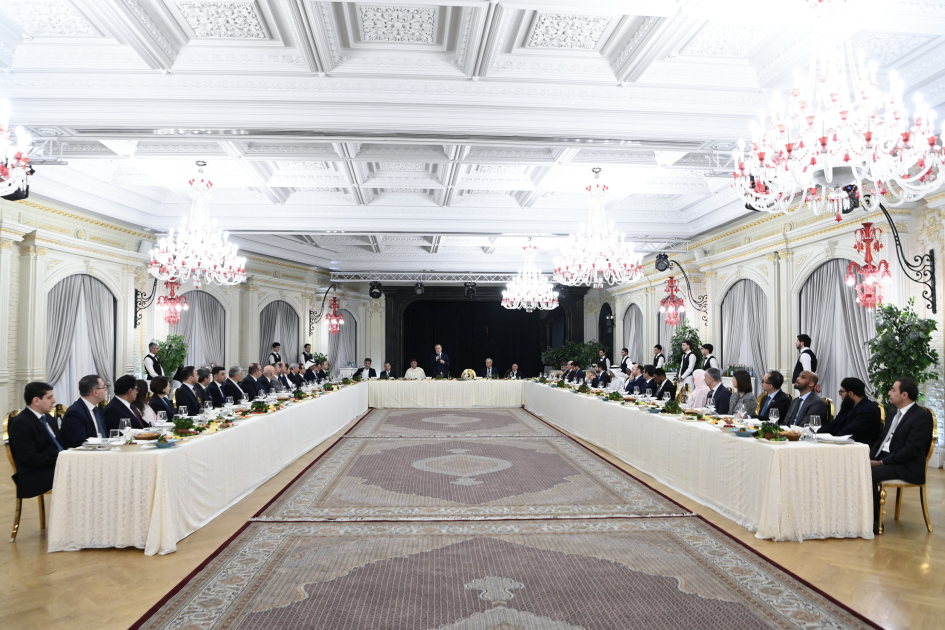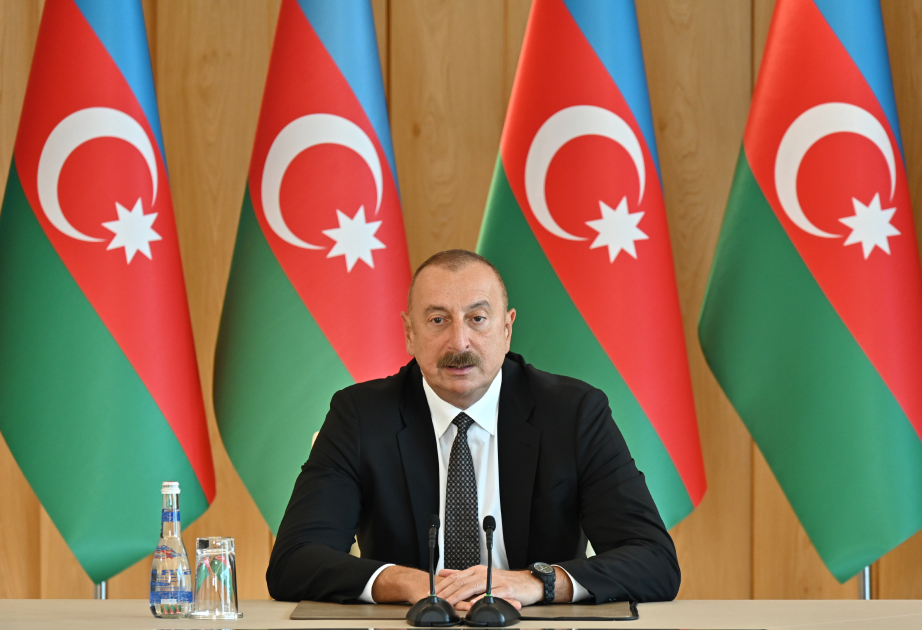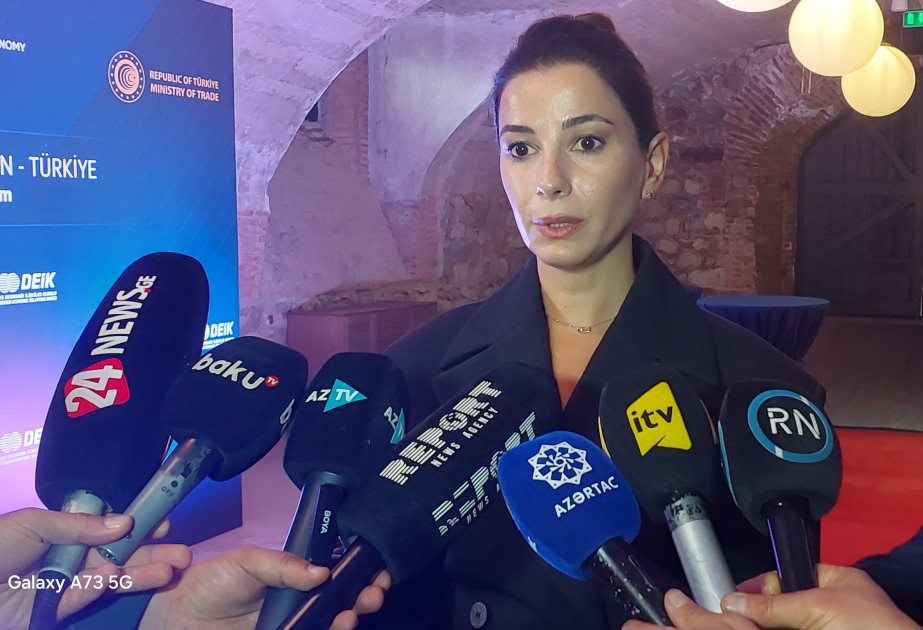Sweden is actively combating climate change: this includes the transition to renewable energy sources, efficient use of resources, stimulation of public transport and bicycle paths, participation in international agreements, etc.
In addition, Sweden actively participates in the UN Framework Convention on Climate Change (COP), making significant contributions to reducing greenhouse gas emissions, developing renewable energy sources and conducting climate research.
In an interview with Report, Swedish Climate Ambassador and Head of Delegation to UNFCCC at Swedish Ministry of Climate and Enterprise Mattias Frumerie, who arrived in Baku for two days, spoke about how Sweden can support Azerbaijan in the successful holding of COP29, the fight against climate change, the impact of the green transition on the creation of new jobs and much more.
- How would you comment on the outcome of COP28 held in Dubai, and what are your expectations for COP29 which will be held in Baku?
- Well, first it’s worth recognizing all the hard work by our Emirati colleagues securing an outcome at COP 28, which delivered, as you know, the first global stocktake, where all countries were called to present new nationally determined contributions, or these new climate plans for COP30. These plans should be economy-wide, cover all greenhouse gases and represent an increase in terms of their emission reduction targets, and also the transitioning away from fossil fuels and energy systems.
It’s the first time that we at the COP meeting decided on or agreed to that we should be transitioning away from fossil fuels globally. We should also be recognizing the work done on the global goal on adaptation. Adaptation to the effects of climate change is something which is already high on the agenda of many countries already experiencing the effects of climate change, so we need to strengthen our response in terms of adaptation.
We were happy to see that we could agree on the framework for the global goal on adaptation. We were also happy to see the number of various types of initiatives that were launched at COP 28, including on finance - the creation of the Loss and Damage fund, for example, or the two declarations on nuclear energy, which Sweden was proud to be part of.
So, we're seeing the COP meetings increasingly as a platform for these various initiatives to highlight the kind of work carried out during the course of the year.
And that, of course, also speaks to the expectations for COP29, where we want to see the momentum in producing the new NDCs, the nationally determined contributions, and make sure that COP29 provides that kind of platform for countries to highlight how far they've come in the elaboration of their NDCs.
And of course, also the new collective quantified goal on finance, the NCQG, is a key element and outcome of COP29.
But I think also here again, we want to see the COP meetings as the platform to showcase the progress being made and also the remaining barriers. So here again, all these various initiatives have an important role to play in seeing what has been achieved during the course of the year, and how can we work even harder to make sure that we're accelerating climate action globally.
- Could you please specify with whom the talks will be held and what issues will be discussed during your visit to Baku?
- So, we met the minister of ecology, incoming president of COP29 and the chief negotiator [Mukhtar Babayev and Yalchin Rafiyev]. We also met with colleagues in the UN family and we met with NGOs and with students of ADA university.
We also met with the representatives of the Azerbaijan Renewable Energy Agency and the Swedish business.
It's been really fantastic to have this opportunity to meet with so many different actors to see how we can work together to ensure a successful outcome of COP 29.
- What are the EU and Sweden, in particular, doing do towards the green transition?
- I think we [Sweden] are doing a number of things as a country and also as part of the European Union.
In Sweden, for example, our energy system is already basically fossil-free. Nuclear and hydropower accounts for about 80% of our energy mix, the rest being wind and solar. So, the majority of our energy production is already fossil-free.
Whereas other countries in Europe are maybe still partly relying on coal, natural gas and some oil is also used as well.
We're seeing an acceleration of the transition and we're putting in place a regulatory framework within the EU.
You might have heard of what we call "the fit for 55 package", where we're setting in place laws to ensure that we are reducing our emissions by at least 55% by 2030. This includes the transition within the energy sector. The European Commission proposed just recently a new target - to reduce our emissions by 90% by 2040. We're working together within the EU to ensure that we have a regulatory environment that incentivizes this transition, whereby putting in place both, for example, pricing mechanisms, within our own carbon pricing mechanisms, to make it more expensive to use fossil fuels and to make it cheaper to use fossil-free energy in order to facilitate the transition.
- How could Azerbaijan and Sweden cooperate in preparation for the next COP to make it a success and next step for the implementation of the UAE Consensus in the areas of finance reform, just energy transition, and Loss and Damage fund?
- I'm looking forward to be following up all the various conversations I'm having here in Baku, on the one hand, with civil society organizations, making sure to make those connections between civil society organizations here and Swedish organizations, for them to be able to work together, and also, of course, working with the incoming presidency to support them with whatever kind of ideas that we could have in order to make COP29 a success. To support the Azerbaijani presidency in delivering on what needs to be delivered, both when it comes to financing and also when it comes to new NDCs and how we can be working with partners to accelerate climate action.
I'm accompanied here in Baku with a colleague from Business Sweden, which provides a platform for Swedish business actors to be part of the COP meetings. So, we've had a Swedish pavilion for the past couple of years at the COPs, where Swedish business actors present the solutions that they have to accelerate the transition in other countries - in the transportation sector, in the energy sector, in the financial sector and within the agriculture sector.
- What could you say about the impact of the green transition on job creation and economic development?
- That's how we want to see that. The transition will bring about changes within industries and create new industries. There will be job losses, and there will also be job gains.
Our role at the COP meetings is to highlight where the opportunities in the transition are and how we, as a global community, can support each other in identifying how we can create new jobs by accelerating the transition.
We have something within the COP meetings which we call the Just Transition Work Program, which was established at COP27, where we exchange experiences in terms of how we can make the transition inclusive, make sure that those who will be out of their job retrain into new jobs. I think that it's an important part of the transition to ensure that there is a whole of society approach to ensure that everyone has a place in the transition to net zero.
- Azerbaijan is a leader in the South Caucasus region in green energy transition. How can the two countries collaborate in this direction?
- By comparing notes on where we are, what kind of solutions there are available and how you manage the transition in a way that brings these kinds of positive benefits in everything. Looking from how you set up your policy environment, what kind of laws and regulations you want to put in place, and how you finance the transition and what kind of technological solutions are there available.
If a country wants to move into renewable energy, for example, what kind of technology do you need and what kind of solutions do you need and how can you build your research capacity to explore those kinds of solutions? I think there are several elements there within the society that you can strengthen and some of them are very basic elements. For example, how are your curricula in schools are designed in a way which spurs that interest from an early age to ensure that you are well prepared when you enter into the labor market.
- What do you think the developed countries should do to combat climate change since they are the main culprits of this situation?
- I think all countries need to do more. And, of course, developed countries have a special responsibility, also enshrined in the Paris Agreement, to be leaders and to be leading in the transition. And I think that's what we're hoping to do within the EU - to be able to provide that kind of leadership, both from the policy side and in terms of the kind of finance that we provide.
Sweden is one of the biggest providers of climate finance globally. When it comes to the kind of technological solutions that are available, again, our business actors engage with partners globally to provide that kind of solutions. There are several ways where we can show leadership.
Hopefully, by showing that kind of leadership, we can also encourage others to be even more ambitious when it comes to their climate action.
- What could you say about the role of business in coping with climate change?
- Very important. Businesses are key players in providing these kinds of solutions where they have the innovative capacity, they have the solutions available to support the transition in the sectors where they are engaged.
What's interesting, at least when we speak to Swedish business actors, is that they see that they're making the transition because they see that this is how they will be making money and this is how they will be strengthening their competitiveness, and this is how they will be creating jobs, by embracing these new business models in securing their transition to net zero.
I think what's interesting is that it's happening in so many parts of the economy at the same time. And a challenge with the transition to net zero is that it needs to happen quickly and across the various sectors of the economy at the same time. But we also see the strong engagement from the Swedish business actors who are eager to be part of the transition to net zero globally and are working with global partners to ensure that there is that kind of transition happening.
They are also looking throughout their value chain - from production to transportation to delivery to client - to secure decarbonization of their value chain globally as well. So, I think that kind of commitment is also worth highlighting when looking at the role of business actors in what they can bring to climate action globally.


